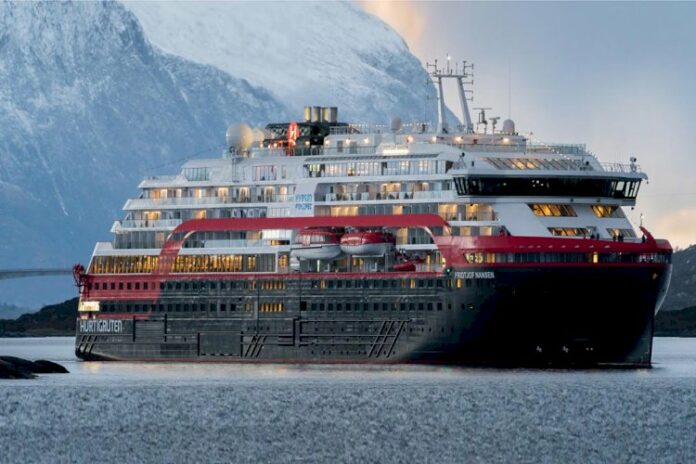In the face of increased environmental regulations, the marine industry is looking for technological ways to reduce its environmental impact. One such technology currently experiencing rapid growth is the integration of Lithium-ion batteries, to convert traditional diesel electric propulsion systems to diesel electric-hybrid power systems.
LOC’s Snr. Electrical Engineer and Consultant – Dr. Julius Partridge, discusses the advantages of battery hybrid technology for a more sustainable shipping environment, and for which types of vessels this provides a viable alternative fuel system. A diesel electric-hybrid system offers several potential advantages, including reduced fuel consumption and emissions, both locally and globally, and reduced operating hours for the diesel generators.
These benefits are made possible by the increased operating flexibility of the vessel’s power system and the ability to operate the diesel generators more efficiently. These factors can be summarised through the following functions: load levelling, peak shaving, spinning reserve, Anchor/Port hotel load and increases in the standby generator set point.
Fundamental properties of lithium battery technology support power system flexibility and explain why diesel electric hybrid vessels are seeing such growth and interest.
The lithium-ion battery’s ability to cycle through both charge and discharge may seem like a trivial action, but this property completely changes the dynamics of the power system. When you consider the rate of response of battery technology to changes in power demand and the availability of that power without needing to start machinery, the benefits of battery technology start to become apparent.
The best option in terms of system efficiency is a diesel electric-hybrid, combined with the development of DC (Direct Current) distribution systems. Whilst it is feasible to combine a battery with an AC distribution system, the efficiency of the battery charger, and thus the fuel and emissions savings, are greater for DC distribution systems.

However, it should be noted that diesel electric-hybrid systems should not be considered a silver bullet for emissions reductions – the benefits depend heavily on the type of vessel and the application it is used for, though when applied to the right sort of vessel the benefits are clear. Operation in Dynamic Positioning (DP) is one mode of operation that offers considerable potential where the batteries can be utilised to reduce the number of generators required and improve the loading on the generators that are running.
Whilst battery technologies have been around for a significant period of time, the capital costs associated with battery systems have fallen dramatically in the last decade as a result of widespread deployment, particularly in the automotive market. These cost reductions have transferred into the marine market, making integration of battery systems onto vessels increasingly attractive.
In conclusion, deployment of diesel electric-hybrid power systems can bring economic and environmental benefits to the operation of a wide range of vessels. It is, however, important to acknowledge that this is dependent on the vessel type and operation of the vessel, where ocean going cargo or bulk carrier vessels are unlikely to yield significant economic or environmental savings.
In general, the greatest benefit is available to vessels that exhibit large variations in power demands and particularly those that operate for a considerable proportion of their operating time with low loaded generator sets. This could be true of a wide range of vessels such as OSV, PSV, coastal ferries, cruise ships and tugboats.



